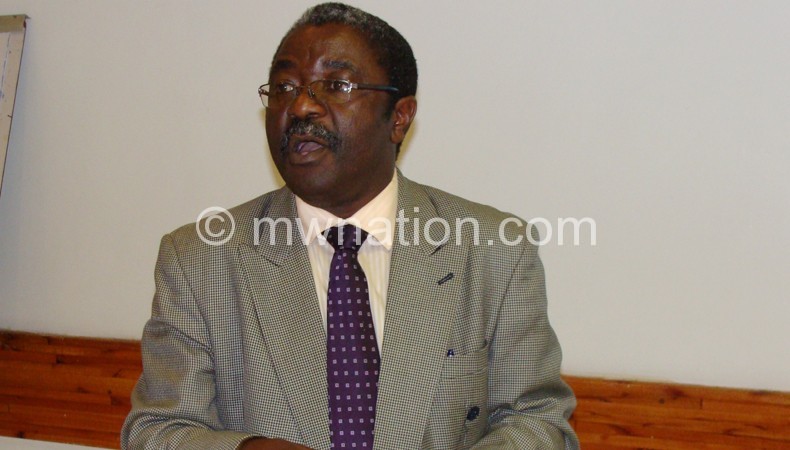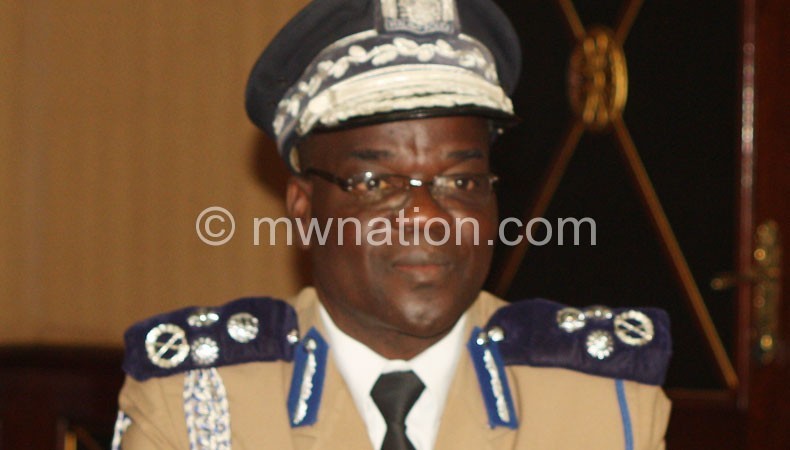CSOs condemn security sweep
Civil society organisations (CSOs) and a constitutional law expert have condemned the joint security operation conducted last weekend, saying it is a violation of people’s rights.
Malawi Police Service (MPS) in conjunction with Malawi Defence Force (MDF), Immigration Department and intelligence agencies carried out the operation on September 12 and 13.

During the exercise, undertaken amid concerns about increasing cases of insecurity in the country soon after President Peter Mutharika won the presidency in May, 2 119 suspects were arrested and two guns confiscated.
National Police deputy spokesperson Mable Msefula said 987 suspects were arrested in the Central Region, 473 in the Southern Region, 414 in the Northern Region and 282 in the Eastern Region.
But in a statement issued yesterday, the CSOs, comprising Centre for Human Rights Education, Advice and Assistance (Chreaa), Malawi Law Society (MLS), Human Rights Consultative Committee (HRCC), Child Rights Advocacy and Paralegal Aid Centre (Crapac), Youth Watch Society (Yowso), Centre for Human Rights and Rehabilitation (CHRR), Pakachere Institute for Health Development and Communication and Southern Africa Litigation Centre, have condemned the action.

Reads in part the statement: “Arresting persons without prior investigation or proof of an offence having been committed constitutes a violation of their constitutional rights, including the right to human dignity, the right to freedom of movement, the right not to be subjected to cruel, inhuman or degrading treatment and the right to freedom and security of person.”
The CSOs observed that while it is true that crime is on the rise in the country, arrests should comply with legal requirements, utilised sparingly and be supervised to ensure compliance with constitutional requirements.
Constitutional law expert Edge Kanyongolo, an associate professor of law at the University of Malawi’s Chancellor College, backed the CSOs’ statement, saying the Constitution is supreme in the country.
Said Kanyongolo in an interview: “We live in a country where the Constitution is supreme. The Constitution says that everyone is innocent until proven guilty, but the approach taken was like they [the suspects] were guilty and have to prove their innocence.”
And writing on his Facebook page, Kanyongolo said: “Malawi is not in a State of emergency. Any enforcement of the law must, therefore, be done within the confines of the law and with full respect for human rights.”
But Inspector General (IG) of Police Lot Dzonzi, in an interview yesterday, said much as police have the obligation to protect the lives and property of all Malawians, their job is tougher than that of the civil society.
Said Dzonzi: “The Malawi Police Service has the constitutional obligation to protect the lives and property of all Malawians. Fulfilling that obligation is tougher than the job of the civil society. If they [civil society] are able to hear the cries of Malawians about insecurity, they should be able to understand our action.”
He, however, said the police are trying to strike a balance (between suspected crime and human rights) of those arrested during the sweeping exercise.
In recent weeks, the country has witnessed a significant rise in crime, particularly in urban areas since May 2014.
Last week, daring robbers broke into and attempted to steal at the official residence of the Vice-President in Blantyre, raising questions of how safe citizens are if the home of the second most powerful man on the land—Saulos Chilima—can be broken into so easily.
Two weeks ago, Standard Bank Mzuzu Branch was also robbed of over K500 million by gun slingers.
The bank job prompted Mutharika to declare war on crime and announced that as a starting point, government had bought 50 vehicles to equip the police to effectively respond to the crime concerns.





